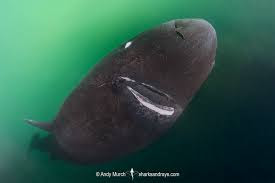SHARK WEEK
This week is
the 367 annual “Shark Week” on the Discovery channel.
I love shark
week. Sharks are cool, scary, but
cool.
Apparently, according
to the “Shark Week” experts, shark’s reputation as man eaters is overdone and
sharks are really quite safe. Your
chances of getting hit by lightening are 100 times greater than getting bit by
a shark. Of course, if you spent the
same amount of time swimming in shark infested water as you do out of the water
during thunder storms, those odds might be quite a bit different.
Anyway, sharks
are cool and I enjoy learning about them on “Shark Week.” I do want to throw a penalty flag on some of
their episodes.
A common
thread to “Shark Week” segments is:
“Sharks
are a valuable part of our eco-system.
Without sharks the oceans eco-balance would be disturbed and…we will all
die! (some exaggeration on the all die part, but implied.)
Because
our continued existence is dependent on sharks, it is incredibly
important that we study and learn more about sharks so we can protect their
population.” (again some exaggeration, but implied,)
Now I am not
throwing the penalty flag on protecting sharks or their importance in our
eco-system. I have a nephew who is a
marine biologist. His wife is a marine biologist. They are both beyond brilliant. My friend Frog’s son is a marine
biologist. He is beyond brilliant. I am certain they would all tell me,
“Yes
Uncle Cranky, sharks are very important to the ocean ecology.”
See, I am
not arguing that, though it may be a tiny bit overblown, I am questioning how
these “Shark Week” experts study sharks.
I suspect they are more concerned with getting entertaining content for “Shark
Week” than they are in learning about and protecting sharks.
For instance,
I just watched an episode where the experts captured a Sleeper Shark. Now, sleeper sharks live over 6000 feet deep,
and even though they live to be over 250 years old they are very rare to see.
These experts
baited hooks and sank them to sleeper shark depths. They left the hooks overnight and returned
the next day where they were ecstatic to have caught an 8-footer (small for
sleeper sharks).
They raved
about how important this catch was. They
would take all the shark’s statistics, length weight etc., tag it and release
it.
EXPERTS:
“This is
an incredible opportunity. To capture one
of these magnificent animals is super rare.
We can tag it and later learn about its habits; where it feeds, how fast
it grows, all information which will help us to preserve the species and save
all humanity from extinction.” (They did not say that last part, but again, it was kind of
implied.)
Anyway, here
is my problem with all this.
Hooking a
large animal at 6000 feet deep and not pulling it up for a day must be very stressful
on that animal. It seems to me hauling
it up 6000 feet must not be good for the animal (do large fish get the bends?)
Finally, if it is so super rare to capture this animal, how valuable will
tagging it be? I mean will it ever be
caught again to gather all that valuable information?
I say, if
you want to preserve this species, leave it the frig alone! The damn things live over 250 years, I don’t
think they need our help. The capture
and tag charade in this case was more about content for TV than it was to save
the sleeper shark.
It was
however, very cool, and interesting.
BTW, sleeper
sharks are not known to attack people (maybe because people don’t often swim
6000 feet below the surface) so you are safer swimming with sleeper sharks than
playing golf in the rain.




